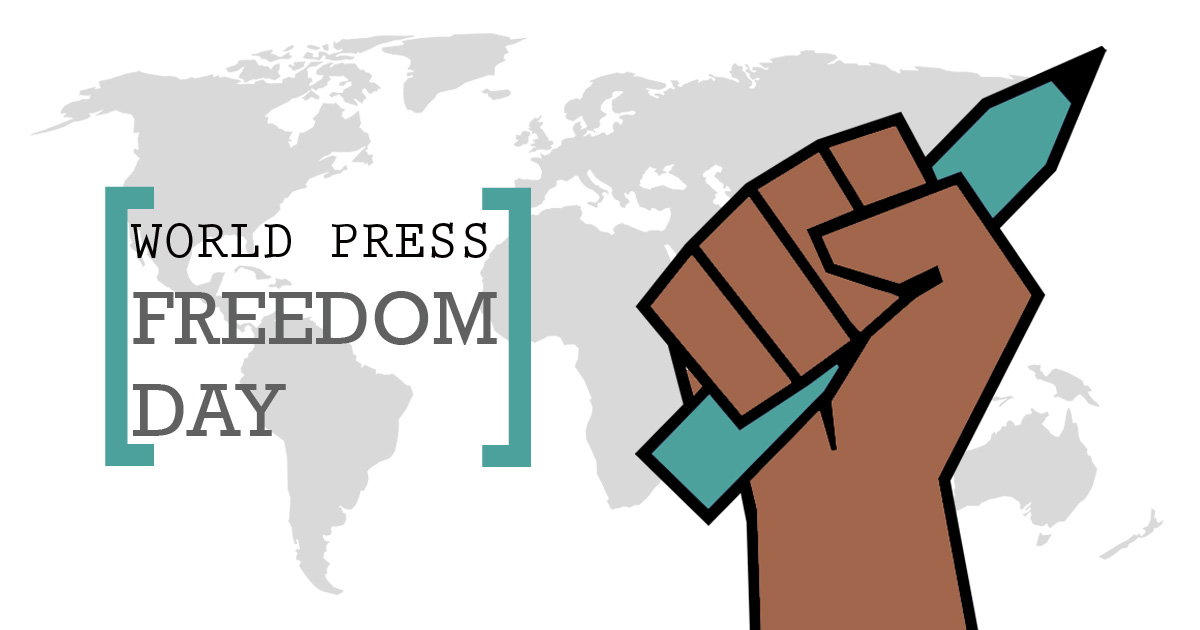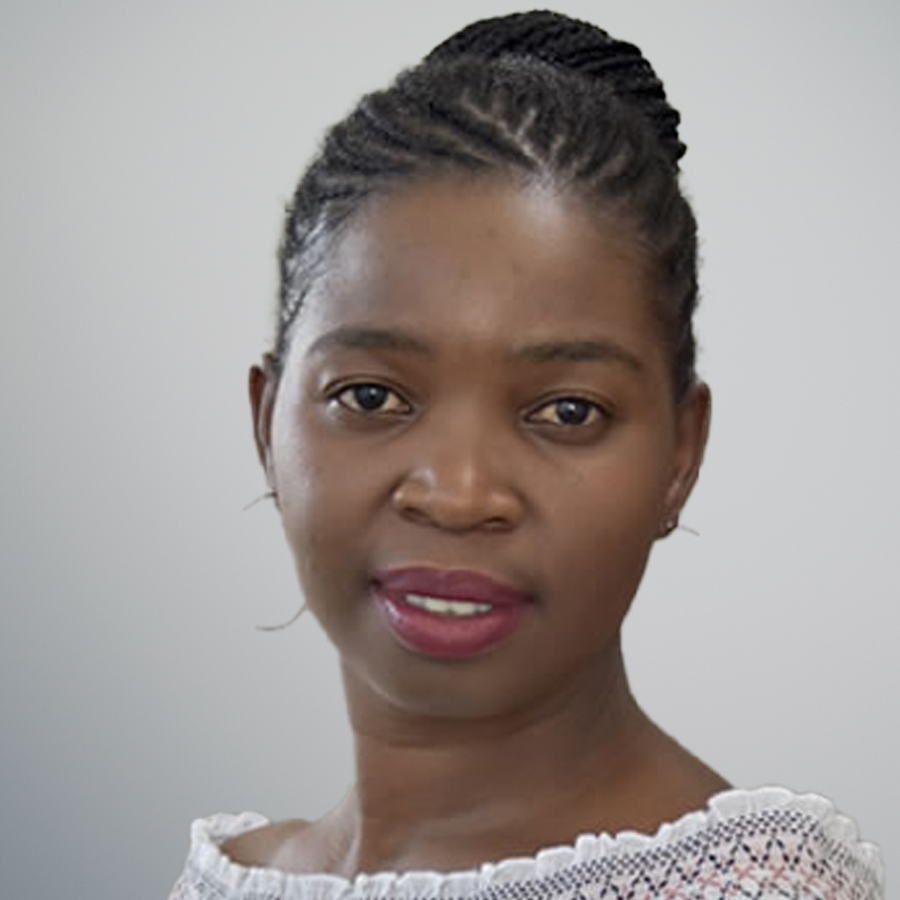The World Press Freedom Day is commemorated annually on 3 May to reiterate State obligations to respect, protect and promote press freedom. The United Nations General Assembly proclaimed this day in December 1993. Three decades later, the need to celebrate the democratic contributions of an independent press and reaffirm commitments to protecting the press against existing and evolving threats to their freedom remains crucial.
On this World Press Freedom Day, the world reflects on the exercise of journalism and freedom of expression amid the global environmental crisis. Climate change denialism becomes increasingly untenable in the face of escalating anthropogenic environmental catastrophes. As the globe grapples with pressing environmental challenges, the role of journalists in articulating climate justice concerns and advocating for action is vital. According to the State of the Climate in Africa 2022 report, Africa suffers a disproportionate vulnerability to climate change effects despite relatively lower global greenhouse gas emissions. Increased prevalence of floods, droughts, and rising temperatures in the continent pose an ever-growing threat to food and water security, the right to a healthy environment, sustainable development, natural resource production and biodiversity. Worsening land degradation is concerning given Africa relies on the agriculture sector to employ over half of its workforce and bolster over 35% of its gross domestic product.
However, the climate change and environmental crisis subject has been deeply politicised and continues to draw polarised debate. Journalists have been at the forefront of disseminating information and stirring public debate on climate change and environmental crisis and the responsible actors. Environmental journalists serve crucial public interest roles in exposing corrupt and illegal activities driving and escalating climate change and environmental degradation. As a consequence, the threat factor on independent and investigative environmental journalists as well as other environmental activists has magnified. Often, the culpable parties are powerful state actors and private national, transnational and multinational corporations whose respective rent-seeking and profit returns are threatened by environmental journalism. In this economic and political milieu, access to relevant, accurate and timely information related to climate change, environmental degradation, risk assessments and mitigation measures, corporate contracts and government policies is challenging. The ability of journalists to accurately report on these issues is therefore impaired. The Preamble of the Paris Agreement on climate change rightfully affirms ‘the importance of education, training, public awareness, public participation, public access to information’ and multilevel cooperation to the implementation of the Agreement.
The broad country context of the respect for human rights and fundamental freedoms such as freedom of expression and media freedom as well as fidelity to the rule of law implicates the state of environmental journalism. Unfortunately, many African countries register poor scores with regard to the protection of human rights. Violations and abuses suffered by journalists and other media practitioners including environmental journalists include killings, physical attacks, torture, extra-judicial killings, judicial harassment, enforced disappearances, unlawful surveillance, cyber harassment, arbitrary arrests and illegal detentions. Recourse to law enforcement, who may very well be implicated in human rights violations and abuses, is not an option for victims in many African countries. A 2024 report by the International Press Institute reveals the complicity of law enforcement in intimidating, threatening and harassing environmental journalists in Nigeria, Cote d’Ivoire and Cameroon.
The remote location of many environmental degradation incidents also poses challenges to freedom of movement and access to information. Moreover, local journalists and freelancers working for small news media who are usually in closer proximity to these sites are particularly vulnerable to violations and abuses compared to their counterparts in larger established media houses. The protection and empowerment of local journalists cannot be overemphasised given the resource demands of travelling to remote areas to report on environmental issues. Therefore, local journalists who may have a better understanding of the context are conveniently placed to report on environmental subjects in remote areas. However, this also exposes them to greater risk from beneficiaries of corrupt and illegal activities that are detrimental to the environment.
States have a duty to create an enabling environment for the exercise of freedom of expression and access to information, which extends to protection measures against acts or omissions of non-state actors that violate freedom of expression and access to information under Principle 1 of the Declaration of Principles on Freedom of Expression and Access to Information in Africa (2019 Declaration). The Declaration further outlines the rights of journalists and the media, and State responsibilities towards the protection of journalists in Principles 19 and 20. States are obligated to guarantee the safety of journalists and other media practitioners including implementing measures to prevent attacks against them from State and non-state actors. Where such violations occur, States should investigate, prosecute and punish perpetrators and facilitate access to effective remedies for the victims. The Declaration bolsters the protection of freedom of expression under Article 9 of the African Charter on Human and Peoples’ Rights.
The contentious nature of climate change and environmental discourse and activism leaves the subject vulnerable to misinformation and disinformation. False information on climate change and environmental issues not only impairs public knowledge but also informed policy responses. Journalists play an important role in countering false narratives on climate change and environmental crisis through proactive, accurate and objective reporting. Journalistic integrity is key to promoting a healthy information ecosystem. Multistakeholder efforts by the State, media, civil society, social media platforms, and fact-checking organisations are necessary to effectively tackle mis and disinformation. Information bearers should proactively disclose relevant information to fill information gaps that allow false narratives to flourish.
Unfortunately, State and non-state actors have weaponised restrictive freedom of expression and media laws to silence critical journalists including false news laws. The regulatory trends on false news in sub-Saharan Africa largely infringe upon freedom of expression with vague provisions and disproportionate sanctions. Criminal sanctions for false news in the majority of African countries violate principle 22 (2) of the 2019 Declaration and international laws and standards. Journalists including environmental journalists are invariably affected by such laws for critical reporting that is labelled as false news.
Additionally, powerful public and private actors employ Strategic Lawsuits against Public Participation (SLAPPs) to discourage critical investigative journalism on corrupt and illegal activities. Rather than pursue the protection of legitimate interests, SLAPP suits misuse the justice system to institute long and costly legal cases to intimidate and defeat debate, advocacy and activism on issues of public interest. Journalists, human rights defenders, civil society and academics are often the victims of these vexatious suits. Case in point, Nestor Nga Etoga, a Cameroonian investigative journalist, suffered a seven-year-long legal battle since 2016 for reporting on illegal practices by Fabrique Camerounaise de Paquets (FIPCAM) a timber multinational company. The legal charges included defamation, blackmail and spreading false news. He sadly died in 2022 from health complications after attending over 90 court sessions on his case. Another Nigerian journalist, Amos Abba, has also been a victim of legal harassment by international companies for environmental journalism. Importantly, businesses have a duty to respect human rights and remedy adverse human rights impacts of their activities under the United Nations Guiding Principles on Business and Human Rights. Evidently, there is a need for strong regulatory measures against SLAPPs in Africa given the glaring regulatory gap. African countries should enact specific legislation against SLAPPs to combat the danger posed to freedom of expression.
With Africa grappling to address and adapt to the consequences of climate change and environmental degradation, meet Sustainable Development Goals, and respect and protect fundamental rights and freedoms, informed multi-stakeholder interventions are necessary. Protecting the watchdog and public education and debate work of environmental journalists is key in this endeavour. Overall, a free and independent press is a crucial part of the equation in addressing the climate crisis. The Centre for Human Rights, Faculty of Law, University of Pretoria urges States to respect, protect and fulfil freedom of expression including press freedom as provided by international laws and standards. They should ensure an enabling environment for media including environmental journalists. Similarly, non-state actors must respect human rights and take steps to address the human rights implications of their operations. Emphatically, State and non-state actors should commit to upholding the principles of the rule of law, accountability and transparency through respecting and promoting independent and credible media, and free expression.
For more information, please contact:
Tel: +27 (0) 12 420 3810
marystella.simiyu@up.ac.za
Tel: +27 (0) 12 420 4199
hlengiwe.dube@up.ac.za




